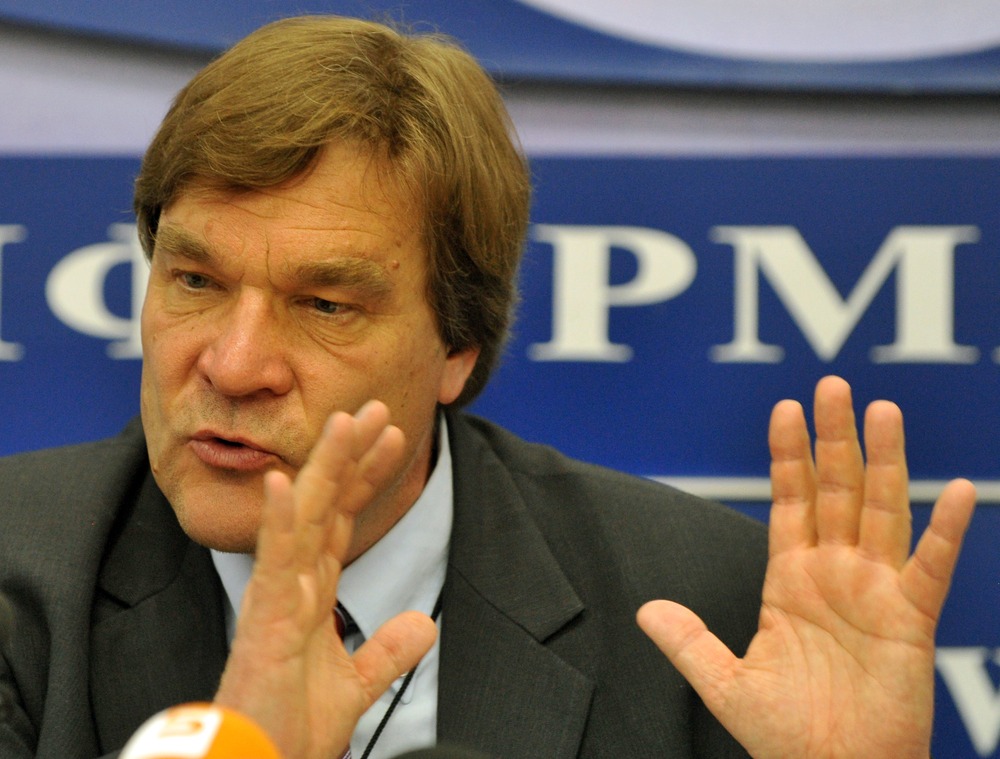
Kyrgyz Parliament Bans Kiljunen
Publication: Eurasia Daily Monitor Volume: 8 Issue: 103
By:

On May 26, the Kyrgyz parliament voted to declare Finish diplomat Kimmo Kiljunen and leader of the Kyrgyzstan Inquiry Commission’s (KIC) investigation as persona non grata. By doing so, 95 MPs (out of 120) who voted for the resolution, have demonstrated an incapacity to handle free discussion on the ethnic clashes of June 2010, making the achievement of a public consensus on what happened a year ago an ever more distant goal.
The KIC’s findings were published in early May, and provoked heated debates in the country. The parliament argues that the report is biased and unfair. According to the report’s findings, roughly 470 people, mostly ethnic Uzbeks, died during the June 10 – 14 violence. More than 400,000 people were forced to flee their homes. At the same time, the report points out that the violence in June 2010 was not an act of genocide, but if investigated and proven, might constitute crimes against humanity (https://www.k-ic.org/images/stories/kic_report_english_final.pdf).
As the first anniversary of Kyrgyzstan’s bloody ethnic conflict approaches, the number of reports investigating the events during June 10 – 14, 2010 has been growing. Human Rights Watch, the International Crisis Group, and Amnesty International were the first ones to react. Kyrgyzstan’s National Commission introduced its own findings in January, and another report by a parliamentary commission will soon be published as well. More reports are also in the works by Kyrgyz MPs and NGO leaders (www.akipress.kg, May 25). Yet, even though at least eight lengthy reports on ethnic clashes in Osh have been published to date, a public consensus on who were the main perpetrators of the violence and what were the main causes for the bloodshed is nowhere to be found. International and Kyrgyz experts disagree on a number of key issues.
Kiljunen’s report underscores a largely destructive role played by Kyrgyzstan’s military officials during the conflict. Thus, Ismail Isakov, who at the time of the conflict was Interim Defense Minister, issued his own version of the events, arguing that the KIC’s findings are biased (www.akipress.kg, May 25). Isakov, along with several other former members of the Kyrgyzstani government, continue to vehemently defend the military’s actions during the conflict, even though nearly all reports investigating the events have alleged the military’s involvement in the violence.
Kyrgyzstan’s human rights activists blasted the parliament’s decision, arguing that MPs are breaking both the country’s constitution and international humanitarian laws (www.akipress.kg, May 26). Instead, NGOs have been calling the parliament to revise and compare all reports that have been published to date and draw broader conclusions about what happened a year ago.
Today, one of the gravest challenges Kyrgyzstan’s government faces is installing justice and persecuting all perpetrators of the violence. The country’s law-enforcement agencies to date have been arresting predominantly ethnic Uzbek alleged criminals, despite the fact that most of the victims of violence were Uzbeks as well. The government officials are concerned that should more ethnic Kyrgyz be persecuted, the situation in Osh would escalate. Furthermore, because most law-enforcement officials and judges in southern Kyrgyzstan are ethnic Kyrgyz, they, too, discriminate convicts along ethnic lines.
Although President Roza Otunbayeva has said that the government will rotate policemen and judges from northern and southern Kyrgyzstan to increase the impartiality of their work, the question still remains whether it will be safe to proceed with arrests of alleged ethnic Kyrgyz criminals before the presidential elections this October. Even with a rotation of policemen and judges, the possibility that trials of ethnic Kyrgyz would be strongly condemned by the local population is high
Another dilemma Otunbayeva faces today regarding the upcoming presidential elections is whether to allow local civil society groups to create special regulations that would prohibit the use of inter-ethnic sentiment in the electoral campaigns. The conflict and disagreements over published interpretations of what happened provide fertile ground for the rise of chauvinism by presidential hopefuls wishing to win over both the votes of ethnic majority and minority groups.
According to Kyrgyz experts, the number of potential presidential candidates might reach up to 20 people. “Among those, about 6 – 7 candidates will enter the home stretch”, says one Kyrgyz opposition party MP. None of the candidates have officially announced their wish to run, but black PR and intrigue are now widely used in Kyrgyzstan’s politics (www.24.kg, May 25).
Kyrgyz authorities have allowed for Kiljunen’s team to investigate the conflict uninterrupted, and published the report despite major disagreements with the findings. Yet, Kyrgyz government officials think that the report failed to mention important positive elements during the conflict, thus necessitating further investigation.
According to the Head of the Department of Ethnic and Religious Policy and Interaction Office of the President, Mira Karybayeva, despite the fact that the KIC recognized the weakness of state power and the general fragility of the situation in Kyrgyzstan last year, the conflict was still evaluated “as though Kyrgyzstan was a strong country, with functioning government institutions, full control over the entire state territory, strong armed forces that were adequately equipped and with a solid understanding of human rights.” Karybayeva argues that anyone who knows Kyrgyzstan, understands that none of these elements were present in the country when the conflict erupted (National Democratic Institute discussion, May 24).




